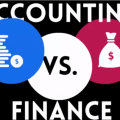In a nutshell: Finance professionals don’t have to follow a traditional career path.
For many people, a career path after earning a finance degree is pretty straightforward. You can choose a finance position with one of the Big Four professional services firms, go into corporate finance and commercial banking, and even explore options with hedge funds, private equity and venture capital.
But, these options might not seem appealing for some. That’s OK. There are many nontraditional options for finance graduates, some of which engage both the creative mind and analytical mind at the same time. Here are some out-of-the-box career options:
Entrepreneurship
Your finance degree, combined with the business acumen you obtained in college, gives you the foundation and discipline you need to start your own company, or to partner with someone else who is starting one. Startups need people who pay careful attention to finance, especially as they outlay money for development and marketing before they see revenue and profits. If you don’t feel you have the right personality for entrepreneurship, think again – some successful entrepreneurs have been introverts.
Business Development
Finance is often seen as a “hard skills” field. But there are opportunities for finance majors to exercise their “soft skills” as well, particularly in sales and business development. A strong financial background is beneficial for many kinds of sales activities, such as venture capital road shows. In addition, business development can make you more cognizant of your company’s products and services, which can serve you well if you want to move up the ladder.
Nonprofits
Some nonprofits are massive organizations, doing work around the globe. Others are smaller, focusing on community needs. All of them require savvy financial experts to make sure funds are well managed, investments are made intelligently, and the organization can operate without disruption. If you’re trying to make a positive impact on the lives of others, look for opportunities in the nonprofit sector.
Military and the Government
Military and government agencies need financial experts to manage operations, budgets and forecasting. If you are considering a finance career with the military, there are educational benefits available. For government agencies, some options include the Office of Budget and Management and the U.S. Department of the Treasury, although most agencies may have finance professionals on staff.
Sports and Entertainment
Finance professionals might not get as much attention as athletes, actors and artists, but they play an essential role in ensuring that fans are able to enjoy sporting and creative endeavors. Without finance experts, the money might not be available to get players on the field, actors in the studio and singers on the stage.
Teaching
Finance professionals with advanced degrees might want to consider opportunities in academia, where they can impart their knowledge to students. A finance professor should have a broad understanding of the field, so that they can provide a comprehensive overview of the profession in introductory classes, as well as specialized knowledge of advanced topics.
Financial Systems Software Development
Modern finance relies on technology. The people who create, update and maintain financial software systems are creating the backbone upon which all finance is based today, and they need a strong background in both finance and software development. In an industry where success is measured in nanoseconds, every technological advantage can make a significant difference.






